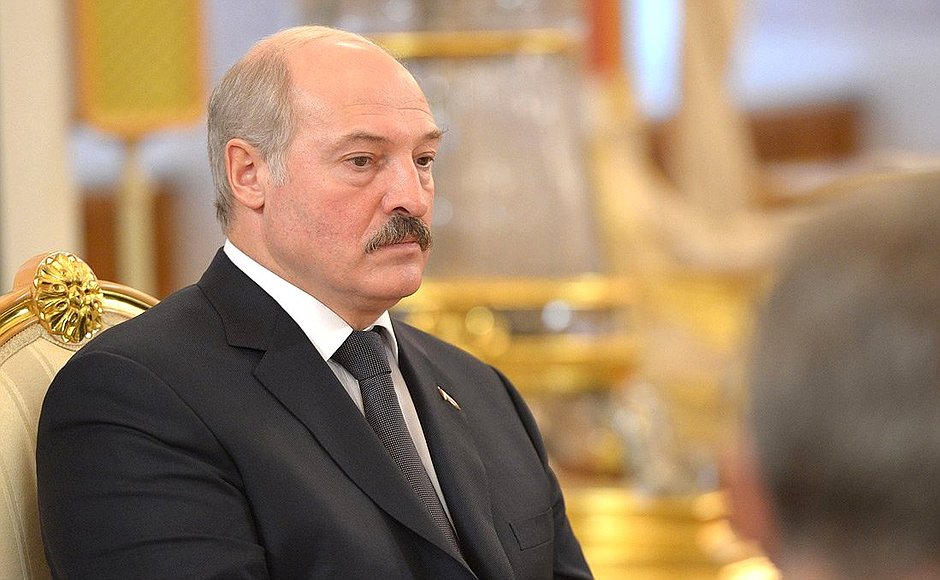Belarus: In thawing EU ties, a trap in disguise
In what is regarded as an unexpected move, Belarusian authorities recently arrested three pro-Russian contributors to a Kremlin-friendly news outlet arguing against Belarusian independence from Russia. The arrests come at a time when relations between Belarus and Russia have increasingly deteriorated, while those with the European Union seem to have slightly warmed, despite ongoing concerns about the human rights situation in the country. However, Europe would be well advised to approach Belarus only cautiously.
December 22, 2016 -
Andrew Witthoeft
-
Articles and Commentary

The thawing of ties between Belarus and Europe follows modest democratic improvements made by the former Soviet republic. The 2015 presidential elections were not marred by the same violent repressions seen in the 2010 elections and the release of political prisoners in the election’s run-up led the EU to suspend most sanctions on Belarus. Furthermore, slight progress was also seen in the 2016 parliamentary elections, when the government made it easier for opposition parties to register – who went on to win two seats – while foreign election monitors were provided with better access to vote counting.
Poland has been leading the efforts to mend fences between the EU and Belarus. That effort was on full display on December 5th, when the Vice Marshal of the Sejm of Poland Ryszard Terlecki visited Minsk. Considered a vital interlocutor for the normalisation of EU-Belarus relations, the two neighboring countries are important trading partners and share a common history and culture. As such, Poland has a major role to play in drawing Minsk closer to the EU.
While this initiative has been welcomed in Europe, on the ground things are far from rosy. The country’s human rights situation has still a long way to go: since the EU dropped sanctions against the country, Minsk resumed executions in what can only be seen as a betrayal of trust. Belarus executed three people in November alone and has sentenced over 400 to death since the 1990s. Conditions are such that a United Nations rapporteur has described Belarus’s human rights situation as “dismal.”
Human rights and democratic reforms are not the only point of tension between Belarus and the EU. A $9.7 billion, Russian-financed nuclear power plant is being built in Belarus’ western region of Ostrovets, much to the ire of Lithuania. Located only 50km from Vilnius, the construction process has been marred by serious safety concerns and a complete lack of transparency. In July, a 330-ton nuclear reactor shell was dropped during construction, prompting a Belarusian opposition lawmaker to lambast Rosatom, the company responsible for building the reactor, for “building a crematorium”. Such concerns have triggered the European Parliament to quiz the European Commission on the plant’s safety standards and economic cooperation between Lithuania and Belarus took a massive nosedive.
Europe should therefore be suspicious about Lukashenko’s sudden desire to approach the West. For a country that has so relentlessly clung to its Soviet ways, the sudden westward turn comes at a very convenient moment. It’s true that to some extent, Lukashenko may be motivated by economic woes. But more important may be his growing wariness towards an increasingly aggressive Russia. After Ukraine’s Euromaidan uprising and its brutal suppression by Yanukovich and Russian forces, Minsk worried that the West would welcome a comparable revolt in Belarus if Minsk clung to the same authoritarian policies. Positioning himself as a bridge between Russia and the West, Lukashenka used the occasion to step up ties with the EU and the US, while balancing those with Moscow.
In doing so, Belarus is leveraging the fact that Russia sees the country as a major strategic foothold in the Baltics, a position which may allow Lukashenka to obtain economic concessions from a Russia “ready to pay for the loyalty of the Belarusian regime for the sake of the Russian military presence and using the territory of Belarus for the needs of foreign and military policy.”
Yet Putin is not easily played. Belarus has signed numerous defence cooperation agreements with NATO members, most recently with Latvia. This outreach to NATO has angered the Kremlin, so much so that Russia has amped up its military drills and increased troop deployments in Belarus. Newly published logistical data of Russian military cargo to Belarus shed light on Putin’s strategic response. Moscow is planning to deploy an extraordinarily large number of Russian troops on the territory of Belarus that some analysts speculate will be “for purposes other than military drills.” In 2016, Russia sent 50 railway carriages to Belarus. In 2017, that number will be 4,162, fuelling fears that Russia will deploy a massive contingent of troops and armament to the country that, along with the recent militarisation of the Kaliningrad enclave, will serve to trap the Baltic states in a pincer movement.
Belarus’s attempt to play the European card against the Kremlin has thus set in motion processes that have the negative effect of accelerating the build-up of Russian troops along the European Union’s Baltic periphery. This will only exacerbate the already high fears of looming Russian aggression pervasive in the Baltic states. The EU thus has to deal with a Russia exerting ever-greater pressure as the saber rattling continues.
Andrew Witthoeft is an EU affairs advisor for an international consulting firm.

































